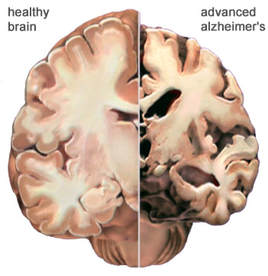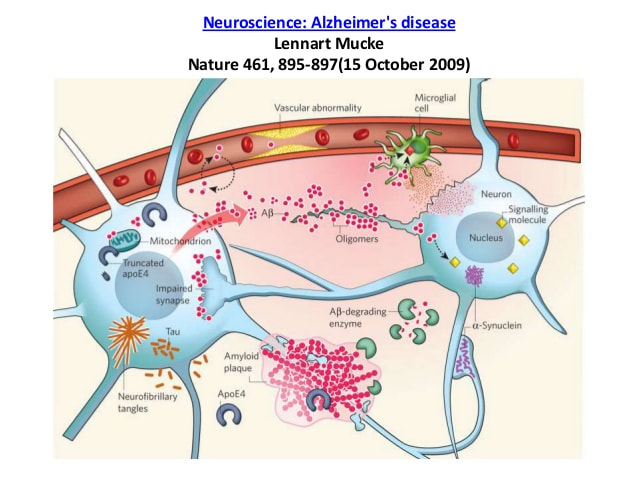Alzheimer’s Research: How Drug Development May Enhance our Understanding of the Human Mind10/15/2017 By Olivia Woodford-Berry, '19  Alzheimer’s disease (AD), a condition characterized by cognitive impairment and continuous neurodegeneration, has left many researchers in the scientific community hanging in the lurch. While AD treatments are on the forefront of medical research, crucial gaps rooted in our incomplete understanding of the human mind still remain in our understanding of the disease. The constraints of modern neuroscience and modern medicine have made it difficult to develop a treatment that can address the elusive cause of this condition. However, in discovering the molecular processes that cause the degradation of neural cells, scientists also gain a more comprehensive picture of how these pathways work normally. Recent studies involving potential vaccines against AD are beginning to illuminate the molecular pathways of the disease and the possibility of reshaping its progression. AD involves the death and degeneration of neural cells resulting in a loss of memory and mental functions. [1] Many scientists believe that the formation of amyloid-β (Aβ)-containing plaques and the resulting disconnect between molecular pathways in the brain play a key role in the progression of the disease. [2] However, determining the exact role Aβ oligomer (ABO) plaques play in shaping molecular function is difficult to determine. A recent study characterized a new vaccine (Aβ3-10-KLH vaccine) that increases anti-ABO immune responses. This vaccine resulted in both a sustained prevention of ABO deposition and reduced neural degeneration in PDAPP mice (which exhibit many of the key symptoms of AD). While other researchers have attempted to create vaccines, clinical trials were often halted due to unfortunate side effects. This particular vaccine appears to approach this disease in way that avoids these negative consequences. This treatment breakthrough also elucidates how such plaques instigate neural degeneration. The effectiveness of this treatment suggests both that these plaques are less toxic if cells can mitigate accumulation and that other suspected causes of AD may not be as significant. These researchers further infer that such molecules act as block for crucial neural signals. Along these same lines, scientists suspect that ABO plaques somehow trigger a redistribution of neural surface proteins resulting in a hyper activation of certain signal receptor molecules. [4] While more research is certainly necessary in understanding Alzheimer's disease, this illuminating experiment not only alludes to a new AD treatment , but also aids in our understanding of the mind. References:
0 Comments
Leave a Reply. |

